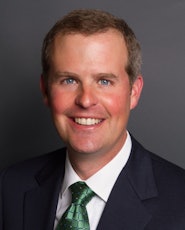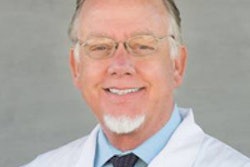
Chances are every six months an appointment shows up on your patient's calendar that it is time for their biannual visit to the dentist. They didn't make this appointment because they had an aching tooth or cavity. They visit you every six months because they know regular preventive care, early diagnosis, and treatment can help avoid more costly dental problems that could arise without a regular checkup.
And it's more than just their teeth that benefit. When your patient visits your office for a checkup, you might identify the earliest signs of diabetes, point out signs of stress, or detect oral cancers.
 Jeff Russell, president and CEO, Delta Dental of Iowa.
Jeff Russell, president and CEO, Delta Dental of Iowa.
As the president and CEO of Delta Dental of Iowa, I see every day how the healthcare industry is changing. Thanks to advances in molecular medicine, genetics, risk assessments, and other areas of research, healthcare in general (including dental care) is being transformed from a system of treating disease in a reactive, one-size-fits-all manner to one that provides predictive, proactive, preventive, and personalized care.
Though the techniques and technology dentists use is ever-changing, the dental care model -- regular preventive care visits and cleanings -- has proved successful. As the healthcare and health insurance industries continue to look for ways to improve quality and control costs, we are moving from a system focused on procedures to one based on outcomes.
To make healthcare more affordable, it's important to bend the cost curve while maintaining focus on positive, long-term health outcomes. The math behind healthcare is relatively simple -- price times quantity. To truly control costs, we need to reduce the number of procedures needed and create a healthier population.
Reducing procedures is one way the healthcare system can learn from the dental community. For more than 40 years we have evidence of how important it is to make the move from treating patients when they're sick to helping them when they're well. This transition will be crucial for the long-term success of the healthcare industry.
“The lessons learned in dental coverage can be a model for this change.”
Wellness is clearly the theme of today's healthcare. Providers, insurers, employers, and policymakers are focused on how we can help people stay well rather than treat them when they become sick. Remember the number of denture product commercials on television 20 years ago? If we can dramatically improve oral health in less than a generation with regular visits to the dentist, we can certainly benefit from using preventive care more effectively in our medical care, too.
In the past, there have been disincentives for providers and patients alike to taking advantage of preventive care. Thankfully, things are changing. And the lessons learned in dental coverage can be a model for this change.
For many of our dental insurance plans, regular preventive care is completely covered or at least covered at a significant portion of the total bill. This collaboration among insurance companies like Delta Dental, dentists, and patients has clearly improved the oral health of Iowans since our founding in 1970.
As consumers have more choice in their healthcare coverage, it's my hope that we begin to think of our healthcare the same way we think about our trips to the dentist. More preventive visits will help control long-term costs. Small investments in our health today will reap large benefits in the future.
Setting aside the political debate surrounding the Patient Protection and Affordable Care Act, I believe real healthcare reform will come as insurance companies, healthcare centers, providers, and consumers come together to change the outcomes of our overall health -- just like dental insurers and dentists have been doing for patients for more than 40 years.
Simply put, preventive care can save lives, improve healthcare outcomes, and lower costs. It's a simple lesson for all healthcare that dentists and dental insurers have been committed to for many years.
Jeff Russell is president of Delta Dental of Iowa. He can be reached at [email protected]. A version of this Second Opinion first ran in the Des Moines Register.
The comments and observations expressed herein do not necessarily reflect the opinions of DrBicuspid.com, nor should they be construed as an endorsement or admonishment of any particular idea, vendor, or organization.



















